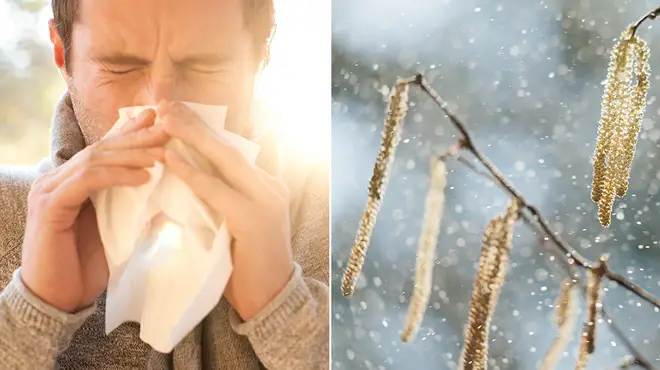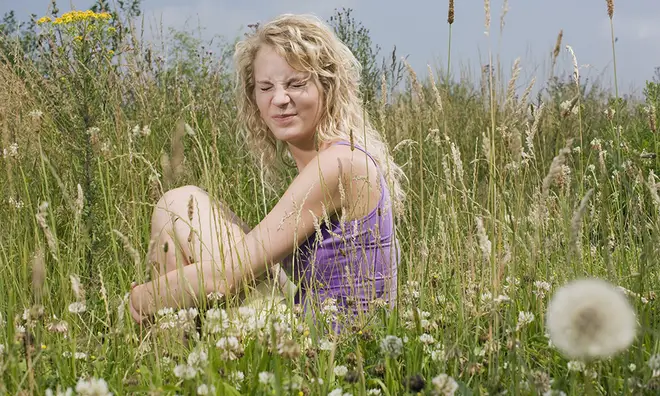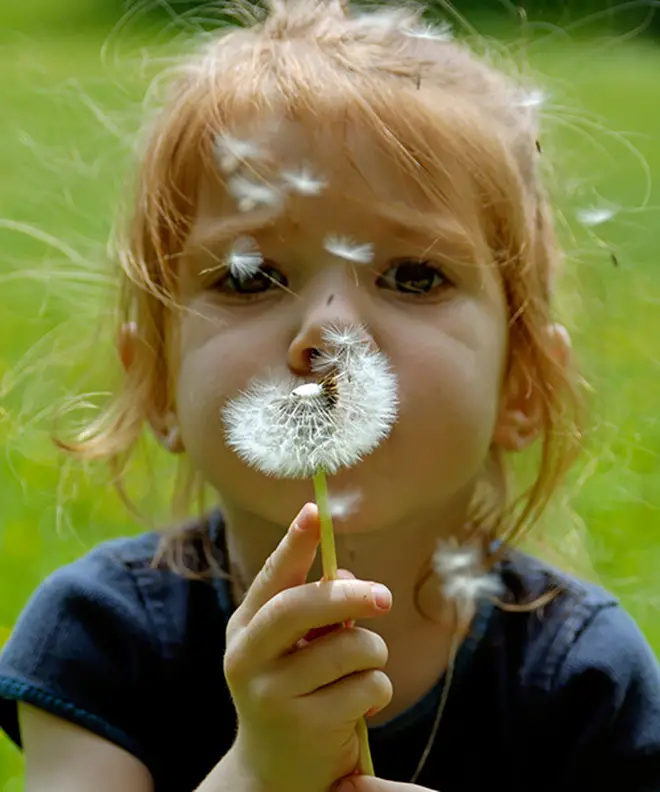Can you get hay fever in February in the UK?
21 February 2024, 15:38

Here's why you're suffering with hay fever symptoms already as allergy season arrives early in the UK.
Listen to this article
The weather in February has been very up and down from snow threats, heavy downpours and warmer than average temperatures leaving many of us struggling with our wardrobes, half term activities and in particular, allergies.
With spring and summer, and what many of us consider being pollen season, quite a way away, many people in the UK are already reporting hay fever symptoms - so can you really get it in February?
Experts have been assessing recent pollen counts as more and more allergy sufferers are reporting symptoms of itchy eyes, sneezes and scratchy throats.
So can you get hay fever in February in the UK? And what pollen season is it? Here's everything we know.

Can you get hay fever in February in the UK?
Typically you will hear people complain about their allergies in the peak of summer, however, experts have said an early pollen boom has arrived in the UK.
Due to the warmer than average temperatures, an early spring has been triggered meaning alder tree pollen has been released earlier than expected.
- Read more: What's the weather forecast for March 2024?
- Read more: When do the clocks change in the UK? Date and time confirmed
As a result of the early rates, it typically means other pollens, such as grass and birch, are also expected to come earlier.
Dr Beverley Adams-Groom, who works as a chief pollen forecaster for the National Pollen and Aerobiology Research Unit, said: "People are calling and saying they’ve already got hay fever this year. It’s due to the mild February."
ITV weatherman Chris Page also said: ‘Mild air has kicked off the pollen season early. Tree pollen is increasing to high."

What are the pollen seasons?
Typically, pollen season begins from late March and can last all the way until October in the UK.
Tree pollen is the first season, ranging from birch to alder, which affects 25% of people.
From mid-May to July is grass pollen season, which affects the majority of UK residents now, and has two peaks throughout the season.
Lastly comes weed pollen season which typically covers June to September.
Where you live in the UK, the weather and the previous winter can all impact pollen rates.
What are the hay fever symptoms to watch out for?
According to the NHS, typical symptoms of hay fever are:
- sneezing and coughing
- a runny or blocked nose
- itchy, red or watery eyes
- itchy throat, mouth, nose and ears
- loss of smell
- pain around your temples and forehead
- headache
- earache
- feeling tired
Currently there is no cure for hay fever and you can't prevent it but there are methods which people swear by in order to help ease the symptoms.
This includes sunglasses to stop pollen getting into your eyes, showering once you come inside to wash it off, keeping windows and doors shut and regularly dust a vacuum.

































